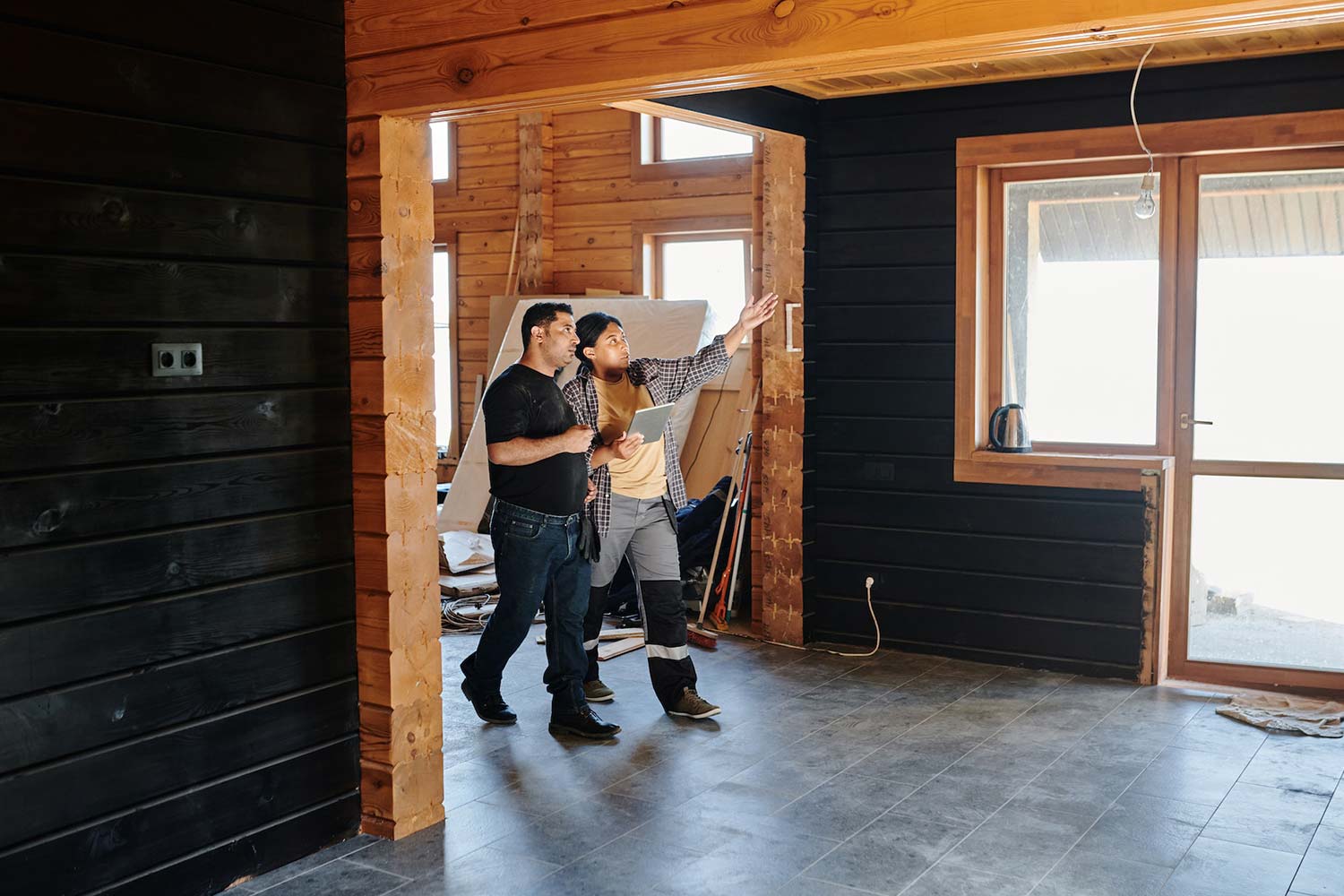
Essential Questions to Ask before Hiring a General Contractor
Whether you’re renovating an existing home or building a new one from scratch, you’ll have to make a lot of difficult choices. You cannot afford to choose the wrong contractor, whether you are doing a little remodeling, an expansion, or full-scale house construction. But hiring a reliable general contractor is the first step in any home construction or remodeling project. Finding a contractor is not difficult at all, but choosing the right full home redesign Austin for the project can be challenging. The difference may be huge if you have the correct team on your side.
You’ve certainly heard stories of folks who spent a lot of money on their ideal homes only to receive, at best, a damaged living space. That’s what you get, in fact, when you choose the inappropriate contractor for the task. Some people even landed up in expensive lawsuits. But if you ask the correct questions before selecting your contractor, you may prevent all of these mistakes.
Fortunately, there are many general contractor interview questions you may use to discover the right one for your job.
Questions to Ask before Hiring a General Contractor
Can I see your insurance and license?
Make sure the contractor can show you the relevant permits and insurance before anything else. Any contractor without a license, no matter the size of your job, might ruin your finances. To learn more about the licensing laws in your region, it’s a good idea to contact your state and city authorities. Even if a license is not required in your location for general contractors, choose the one who has it anyway. Additionally, confirm that the contractor’s name and license number match those on the license. Aside from licenses, stay away from contractors without valid insurance. An uninsured contractor is a lawsuit in waiting.
How long have you been in this profession?
This one is really important when hiring a general contractor. The response you would like to hear is long enough to get at least ten to twenty contactable references. Don’t be afraid to request a few references that can be checked. Verifiable references are those that you can really contact and speak with. A contractor with some previous experience is more likely to have a solid track record. You may get a better idea of who you’re working with by asking the contractor about their company, like how long they have been in business and how much experience they have. The quantity and type of projects the contractor has worked on are good indicators of experience. As you might have guessed, when it comes to the construction sector, experience is far more valuable than time.

What does the contract contain?
The contract outlines the full agreement, including the terms of payment and the range of the task. Ask what is covered in the contract, but be sure you read the full document carefully. In addition to the standard information, the contract should include more details. For instance, if you are constructing a home from the ground up, it is rare for a general contractor to have every kind of worker required under one roof. They’ll frequently have to hire plumbers, painters, electricians, and other professionals to subcontract out work. Ask about the work they do and the names of everyone they plan to hire. The contractor must also inform you about the person in charge of site inspections. You should always ask an expert if you don’t comprehend a certain section of the contract.
What type of documented warranty do you offer?
The majority of contractors provide warranties for their work, and some even offer formal written warranties. This should make it quite obvious what is and is not included in the build, as well as for how long. When thinking about what questions to ask a general contractor, finding out about warranties is very important. A contractor that cannot guarantee their work is not someone you should engage, just as you wouldn’t buy a car without some sort of warranty against defects. Contractors usually offer warranties for two sorts of issues: poor workmanship and faulty materials. The conditions in your written guarantee should specify what the contractor will cover and for how long. A two-year warranty is better than a one-year one.
What is the expected deadline for this project?
If you have a timeframe in mind, you must have a clear understanding of when the contractor will start and finish working on your project. Ask about any factors that can cause your completion date to be delayed. Additionally, it is a good moment to ask about the number of projects they are currently managing. Ensure that the timeframe is reasonable as well. While unforeseen issues may develop when walls are taken down or new buildings are created, a skilled home addition contractor should be able to estimate when the job will be finished.

What is the standard schedule for your payments?
Both you and the contractor you select must be concerned with the payment schedule. Most contractors won’t require you to pay the whole amount up in advance, and you don’t want to, either. Before work starts, go through the payment arrangements, including payment amounts, important deliverables, and due dates. When it comes to payment methods, many contractors usually provide a range of choices, to suit people’s situations. Never, however, pay for the work in full until the project has been finished and inspected.
What is your estimate for the total cost of the project?
The total cost of a project can be difficult to estimate, especially early on in the process. There are many factors that can contribute to the final cost, including the materials needed, the labor required, and any permits or licenses that may be necessary. In some cases, it can be difficult to know exactly how much a project will cost until it is finished. However, there are some steps that can be taken to get a better estimate.
One important consideration is the type of material that will be used for the project. Materials can vary in price considerably, depending on their quality and durability. It is important to choose materials that will meet the needs of the project and that will last long enough to justify the expense.
Labor can also add significantly to the cost of a project. Hiring a professional contractor can be expensive, but it may be worth it for a complex or large-scale project. If someone is doing the work themselves, they need to factor in the cost of their time and any tools or supplies they may need.
Permits and licenses can also add to the cost of a project. Some projects require permits from local authorities, while others may require special licenses from state or federal agencies. The fees for these permits and licenses can vary widely, so it is important to check with the appropriate agency ahead of time to get an accurate estimate.
In general, there are many factors that can affect the cost of a project. By taking into account all of the potential expenses, homeowners can get a better idea of what their project will cost and how best to budget for it.
Will you be working on the project yourself, or will you be subcontracting any of the work?
When it comes to home improvement projects, there are a lot of different options to choose from. You can do all the work yourself, or you can hire a contractor to do it for you. If you’re thinking about hiring a contractor, there are a few things you need to keep in mind.
First, make sure the contractor is licensed and insured. This is important, because if something goes wrong with the project, you don’t want to be liable.
Second, get quotes from several different contractors. Don’t just go with the first one you find. Compare prices and make sure you’re getting good value for your money.
Home improvements may be as thrilling and frightening as traveling to an unknown place, but you don’t have to do it carelessly. With the help of these general contractor interview questions, hiring the best general contractor shouldn’t be a problem. Don’t keep anything back. Remember, it’s your right to ask these questions, and don’t hesitate to ask everything you want to know. Keep an eye out for any warning signs and only accept clear and verifiable responses. Ask these questions, and then choose a home or kitchen contractor Austin, who can give you the answers you want to hear. Do not accept anything less than that, it’s your right. You certainly don’t want to be on the losing end in case of any dispute.

